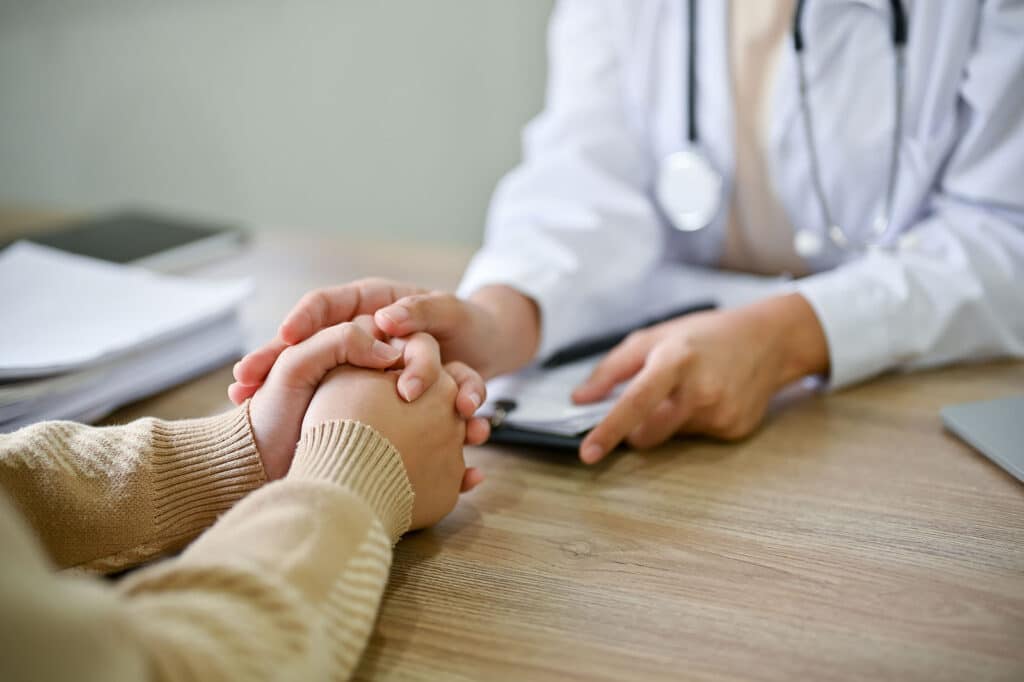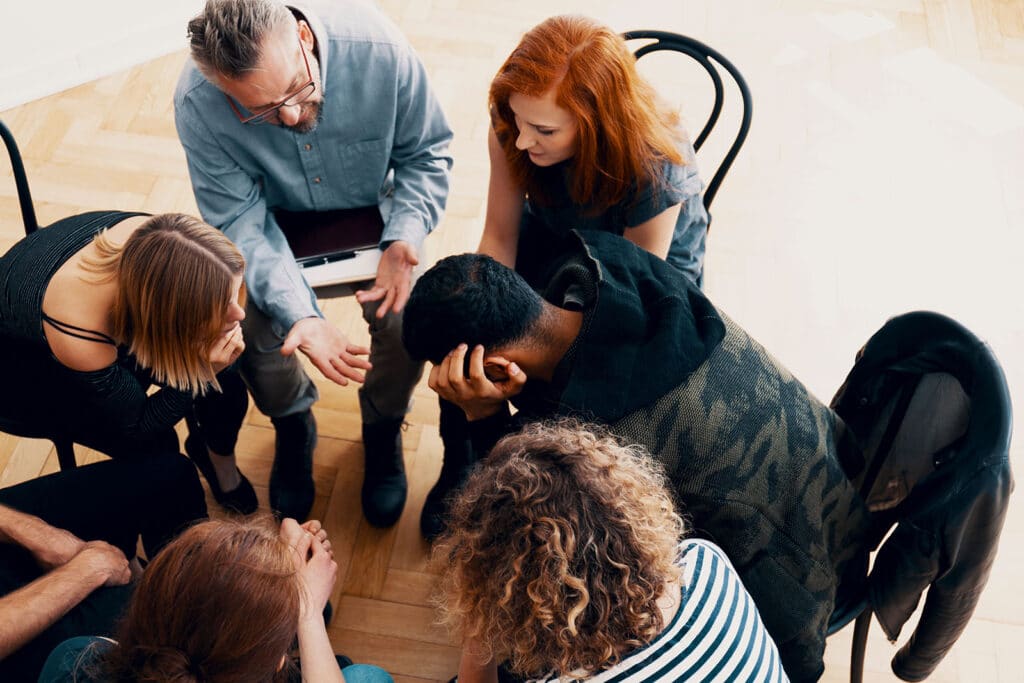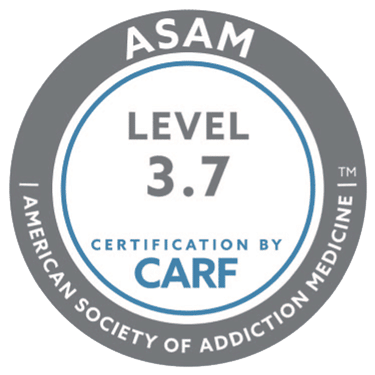Evening intensive outpatient programs are an addiction treatment modality dedicated to easing the transition from inpatient care into the outside environment.
The reason evening IOPs are gaining popularity is that they offer patients great flexibility while still offering optimal support during vulnerable hours.

Keep reading this guide to learn more about evening IOPs and understand their role in beating addiction.
What Is an Evening Intensive Outpatient Program (IOP)?
Evening intensive outpatient programs (IOPs) are healthcare programs designed for individuals unable to be admitted into hospitals for health reasons or due to other commitments.
Instead, patients attend rigorous outpatient sessions multiple times a week during the evening, for 8-12 weeks. These programs are typically used in mental facilities and recovery programs.
Evening IOPs are similar to standard IOPs in most aspects, except for the schedule. They offer the same service and care as a standard outpatient program. This includes group or individual activities, follow-ups, and medication management.
Who Can Benefit From Evening IOP?
Evening IOPs aren’t for everyone. Not all patients require the intensive care of IOPs.
While evening IOPs offer excessive care, the lack of monitoring makes these sessions unhelpful for patients requiring inpatient care.
There are numerous types of IOP programs, depending on patients’ conditions. Yet, all of these patients might benefit from evening IOPs for the following reasons:
- They have daytime commitments or health problems preventing them from sticking to a daytime schedule.
- The patients need well-defined addiction treatment strategies, but they’re able to cope with daily activities.
- Patients have finished their inpatient treatment and require support during the transition process.

Components of Evening IOPs
Evening IOPs are just as structured as other mental health programs. They consist of concentrated sessions that usually entail the following:
Therapy Sessions
Counseling is an essential part of addiction rehabilitation. For this reason, therapy sessions are an integral part of IOPS. This includes individual and group sessions.
While there are numerous types of IOPs depending on patients’ requirements, the counseling component is the most personalized aspect of evening IOPs.
That’s because patients are paired with specialized therapists who can deal with their needs and provide adequate support. This way, the transition from inpatient facilities can be much easier
Additionally, group therapy sessions provide exceptional support and inspiration, as patients are surrounded by people who are on the same journey.
Skill-Building Workshops
To help patients and former addicts stay on track, they must have all the necessary tools and life skills that allow them to cope with the world. This way, they can learn to recognize their triggers, self-soothe, and avoid relapsing.
Some skills taught at evening IOP workshops include:
- Communication
- Critical thinking
- Self-awareness and control
- Effective decision making
- self-resilience
Educational Sessions
Education is one of the most powerful tools in preventing relapsing. When a patient understands how mental disorders impact drug abuse, they can quickly recognize their behavioral pattern as well as manage their impulses.
These sessions also help patients find all the available recovery tools and resources. This way, once they’re done with the IOP, they’ll still have structure and support.
Peer Support
Lastly, IOPs are one of the best ways for patients to build a community, whether through group therapy sessions, sponsors, or speakers.
Not only does peer support keep patients motivated to continue their journey, but it’s also a way to hold them accountable and improve their self-control.

Advantages of Evening IOPs
When first leaving inpatient programs, patients might struggle with returning to the triggering environment and having total freedom. That’s why intensive outpatient programs are crucial.
In particular, evening IOPs have several advantages, including:
Flexibility
Evening IOPs allow patients to manage their daily activities while simultaneously getting the care they require. In turn, this helps them assimilate quickly.
Even if a patient weren’t hospitalized, some patients still have school, jobs, and responsibilities. Accordingly, flexibility is one of the most important treatment options for mood disorder and substance addiction patients.
Affordability
Evening IOPs are more affordable than other treatment options, especially residential treatments.
Yet, the reason many patients prefer evening IOPs is that it allows them to continue their education, work, and support themselves financially.
Home Environment
Undoubtedly, having a support system makes a world of difference. So, there’s nothing better than the patient being surrounded by their friends and family.
Access to Resources
Evening IOPs provide all the essential tools and resources that patients can apply in real-life scenarios. They also act as a healthy distraction and learning opportunity during the often vulnerable evening hours.
Challenges and Considerations for Evening IOPs
Patients might still struggle with evening IOPs due to the following:
Balance
Many people struggling with mental disorders and substance abuse might find adapting to their regular life stressful enough as it is.
Therefore, balancing the rigorous schedule of evening IOPs can exacerbate the stress, leading their treatment to decline.
Commitment
Ex-addicts face an array of distractions when returning to the outside world, from triggers to procrastination. Paired with the unusual schedule, this could lead them to miss a couple of IOP sessions.
Controlling the Environment
Unlike inpatient facilities, counselors and professionals have no way of assessing, let alone controlling, the patient’s environment. So, patients might face frequent triggers and setbacks.
Comparison With Other Treatment Modalities
Evening IOPs are rather special, not just because of their schedule, but also due to the type of counseling service they offer.
Daytime IOPs
Daytime IOPs are identical to evening IOPs, apart from the schedule, of course.
However, due to the different timetables, daytime IOPs are far less flexible. They’re also not as affordable, as patients are unable to keep their daytime jobs.
Residential or Inpatient Treatments
While the focus of residential treatments is detoxification and mental support during the most vulnerable time, the purpose of IOPs is to provide a support system.
IOPs are also crucial for patients to adapt to the outside environment.
Standard Outpatient Treatments
Standard outpatient treatments typically involve one of the numerous components of IOPs. Also, they’re more sporadic, with patients getting to choose their own schedules.
Accordingly, these treatments are less personalized and offer less observation.
Keys of Success in Evening IOPs
There’s no denying that evening IOPs are incredibly helpful. Still, simply attending a couple of sessions wouldn’t be enough for the 8-week program to work.
Instead, patients need to do the following to ensure they get the most out of the evening IOP sessions:
Regular Participation
Commitment and participation are crucial for IOPs. Patients have to engage with each other, participate in activities, and of course, attend all the sessions. Generally, patients need to participate for at least nine hours per week.
Supplemental Support
Therapy on its own isn’t enough to control substance abuse and mental disorders. Patients must partake in other activities, such as 12-step meetings and therapeutic hobbies. Some patients might also benefit from medication.
Open Communication
Therapy goes both ways. That’s why it’s useless for caregivers and therapists to put in all their effort if the patient isn’t openly communicating.
Supportive Environment
Lastly, evening IOPs only take a part of the day. This program is also relatively short. For this reason, patients must have a supportive environment at home, where they spend their time.
Conclusion
Substance addiction patients need to have a support system and access to rehabilitation tools as they assimilate back into society. This is where evening IOPs come in.
Evening IOPs are flexible treatment modalities as they fit into patients’ daily routines, allowing them to balance a social life, work, and treatment.
Still, IOPs require plenty of effort from patients and their families. It’s not enough for patients to attend the sessions, they also need to surround themselves with a supportive environment and learn to handle their triggers.







